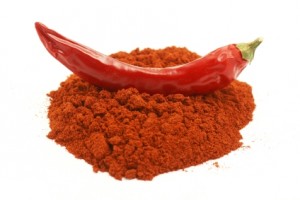Don’t Get Burned – Put More Focus on the Recipe Than the Ingredients

A few months ago, I made a big pot of chili. I have made my Mom’s recipe my own, and always enjoy how it turns out. However, I incorporated a few new ingredients that time, and the initial result was quite interesting. I discovered an important lesson – I have some learning to do when cooking with cayenne pepper. When I checked it after it had been cooking for a couple of hours, I found it to look and smell like chili. After tasting it however, it was so spicy that I thought it was molten lava going down my throat.
The same can be true for investing. In 2010, it simply didn’t matter where you invested. Unless you worked really hard to do so, you were not going to lose money last year. That being said, investors have to remember that the recipe is the most important factor to the success of your portfolio, not making big bets with the hottest fund. Year in and year out, the individual returns of asset classes such as Small Cap Growth, Mid-Cap Value, International Large Cap Value, etc. can behave very differently as you can see via the ‘periodic investment table’ below. Thus, predicting which ‘box’ is going to perform the best is purely speculation. Risk and reward still rule investment performance, and having the appropriate dose of cayenne can add great flavor if used correctly, but it can also cause some pain and sweating if used in too large of a dose. Make sure your portfolio’s recipe is appropriate for you, as having too much or too little of a given ingredient can cost you a lot of money.

Chad, your points are well made and I like the metaphor. I recently read the linked article below in The Economist which points out another important nuance for retirement plan professionals – whether advising sponsors, advisors or participants – to consider. Each box in the ‘investment periodic table’ operates within, and reponds to, movements of a much larger economic engine. Policy decisions that must be addressed in the next 12 months will also determine what will happen over the longer term of our investment plans. We would all be better servants to consider matters like this as well.
Here is the link to the article in The Economist. http://www.economist.com/node/17800111
Lance
I could not agree more. Policy moves have a ripple affect in many ways, and understanding them definitely helps understand their impact on the ingredients and recipe of a portfolio.